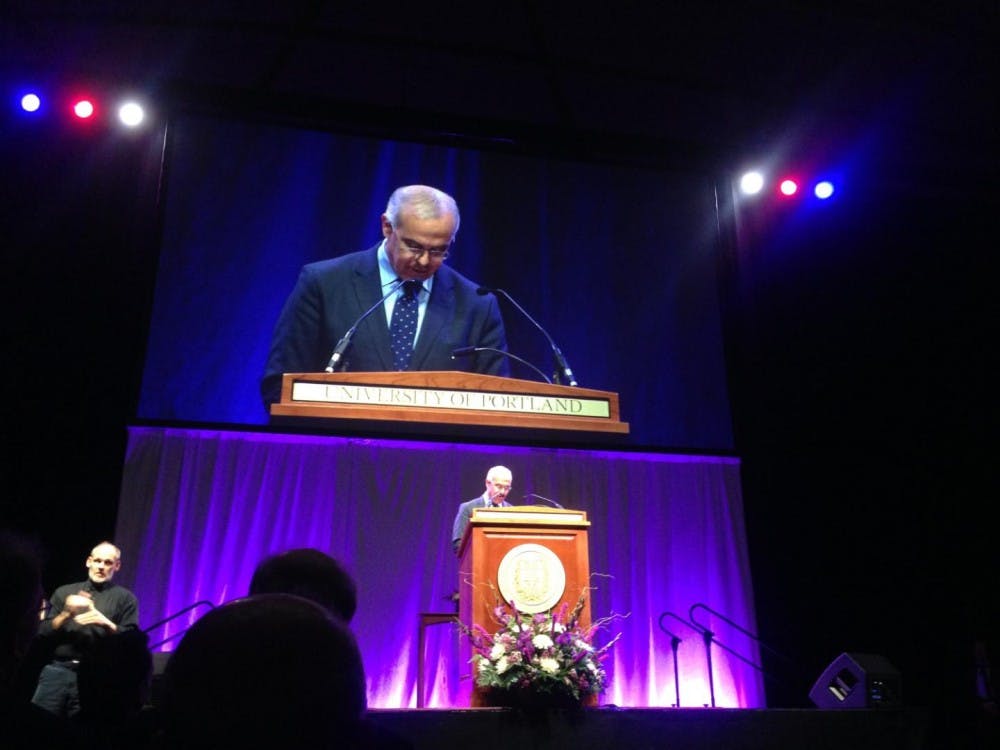by Rebekah Markillie |
He was pulling into his driveway around 7 p.m. after work. It was summer and still light outside. David Brooks happened to catch his children, 12, 9 and 4-years-old at the time, playing in the backyard with a ball. They were running and tackling each other, throwing the ball, trying to be the first one to catch it.
“It’s one of those scenes of perfect family happiness,” the New York Times columnist, who spoke in the Chiles Center Wednesday night, said. “It’s one of those moments when life and time are suspended, and reality goes outside its boundaries, and you get a feeling of being overwhelmed with a gratitude you haven’t earned.”
It’s this kind of pure gratitude that he believes “makes you want to be a little better … (makes) you want to be worthy of such moments” and inspired him to write his fourth book, “The Road to Character," which is now a NYT Bestseller.
During his lecture, Brooks explored the importance of “eulogy virtues” and self-discipline on the road to achieve happiness.
The witty voice Brooks is known for in his writing made an appearance, with quick digs at Donald Trump’s ego and jokes about growing up with hippie parents peppered throughout his lecture. He was also deeply introspective.
The internal drama of finding your higher self is pulled in opposite ways by society. According to Brooks, there are “resume virtues,” virtues that make you good at your job, and “eulogy virtues,” virtues that people will invoke when speaking at your funeral.
“We all know the eulogy virtues are more important — we’d all rather be known for that stuff,” Brooks said. “But we live in a culture where the resume virtues are getting greater emphasis, and certainly in the educational system.”
The resume virtues want practicality and efficiency and eulogy virtues want selflessness and inner strength. Brooks argued that to develop your eulogy virtues and find transcendent happiness, “you have to make yourself strong in your broken places.” And this is where self-discipline and self-reflection is key. He says you must look in toward yourself to find your biggest sin. Self-discipline is required to make any sort of commitment to a life partner, community or vocation. But it’s within these commitments that Brooks said one’s passion lies.
Rebekah Markillie is the design editor for The Beacon. She can be reached at markilli17@up.edu.








